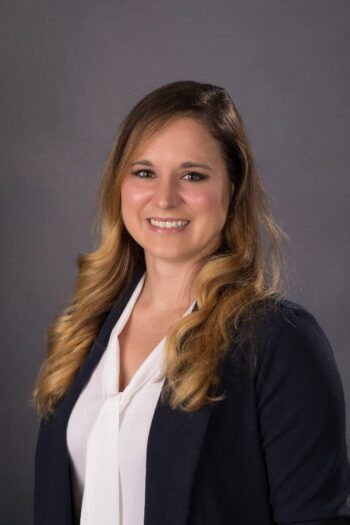
Spotlight on DOC Orthopaedics and Sports Medicine’s Bone Health Clinic
Spotlight on DOC Orthopaedics and Sports Medicine’s Bone Health Clinic
The professionals at DOC Orthopaedics and Sports Medicine are dedicated to the treatment of bone injuries, and they also work to help patients avoid those injuries through treatment plans that include exercise, physical therapy and overall bone health.
“We started the bone health initiative here at DOC a little over two years ago, recognizing that osteoporosis is a significant factor in bone breaks for our patients,” said Rebecca McWhirter, CRNP, Bone Clinic Director for DOC Orthopaedics. “As part of practice dedicated to orthopaedic care, our bone clinic allows us to help predict, treat, and prevent osteoporosis and the bone injuries that may come with it.”
A visit to the bone health clinic is a simple, painless way to get a detailed assessment of your potential risk of osteoporosis and a care plan to improve or maintain your overall bone health. Here’s what you can expect.
Step One – Your History
If you’re new to DOC Orthopaedics, you can expect quite a few questions as part of your overall assessment. The team will need to know things like whether you’ve lost any height since your 20s or if you’ve had a bone fracture since the age of 50. Here are a few additional questions you may be asked:
● Did anyone in your family have osteoporosis or a hip fracture?
● Have you been on steroids long term?
● When did you go through menopause?
● Have you ever taken hormone replacement?
● Has your testosterone ever been low?
● How much do you smoke, drink alcohol, drink caffeine?
● How active are you?
● What medications are you currently on?
● Have you ever received chemotherapy?
● Have you had gastric bypass?
● Do you take a vitamin D or calcium supplement?
Step Two – The Lab Work
If you haven’t had any lab work completed within the past two years, the bone clinic team will start there. First, you’ll have a bone metabolic panel, a simple blood test that shows chemical levels that may impact your bones. If you’ve already had lab work, the team will start with those test results.
Step Three – The Scan
The next step is to schedule a DEXA (dual energy x-ray absorptiometry) or review your results if you’ve already had one. A DEXA is an imaging test that measures your bone density.
Step Four – The Score
Once your DEXA scan and history are complete, the bone clinic team will calculate your FRAX score. This osteoporosis risk assessment test uses information about your bone density and other risk factors to estimate your chance of breaking a hip as well as your combined chance of breaking a hip or other major bones over the next ten years.
Step Five – The Treatment
You typically don’t have treatment options decided at your first visit, and there may not always be a pharmacological treatment. Other possible treatment options include lifestyle modifications, dietary concerns, activity level, and bone-safe exercises.
“New and improved treatments are now available for osteoporosis. Recent data shows that half of all women over 50 will suffer a fracture related to osteoporosis,” said McWhirter. “At DOC Orthopaedics and Sports Medicine, we are able to assess for diagnosis, treat the condition as needed and provide education to help patients keep their bones healthy.”
If you think you may be at risk for osteoporosis – or if osteoporosis runs in your family – you may want to consider a visit to the Bone Health Clinic at DOC Orthopaedics. The clinic is a part of DOC Orthopaedics and Sports Medicine, which has been committed to providing exceptional orthopaedic care through innovative techniques, quality services, patient communication, and education for 50 years. With specialties ranging from general orthopaedics and physical therapy to sports medicine, joint replacement and more, the doctors at DOC Orthopaedics and Sports Medicine can provide local expert care for any orthopaedic disorder or injury and help put your life back in motion.
About Bone Clinic Director Rebecca McWhirter, CRNP
Clinic Director Rebecca McWhirter, CRNP has a strong connection with the community she helps treat. McWhirter is a 2007 graduate of Austin High School and completed her master’s degree in nursing at the University of Alabama in Huntsville. After earning her degree, McWhirter worked in the cardiothoracic department at Huntsville Hospital until joining the practice in 2017.
At DOC Orthopaedics and Sports Medicine, McWhirter has practiced as a Certified Acute Care Nurse Practitioner with a primary clinical experience focused on osteoporosis health. She oversees the clinic with the goal of providing quality care to patients in the community where she was raised.

